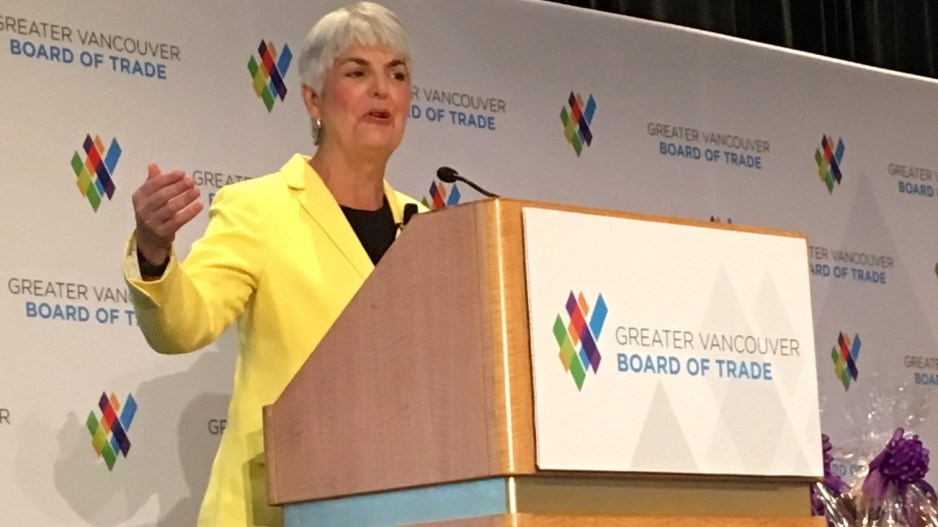When the NDP government announced last year that it would scrap a suite of special LNG taxes introduced by the previous Liberal government, it was characterized as putting the LNG industry on the same footing as any other industry.
The LNG industry would pay the same income tax and BC Hydro rates as any other industry, the government said.
But enabling legislation introduced today, March 25, on the government’s new LNG tax regime appears to give large projects like the $40 billion LNG Canada project a subsidy in the form of a special tax break.
The legislation grants large projects that have agreements with the province – like LNG Canada – a special 3% tax credit on the cost of natural gas. This will bring the company’s corporate income tax rate down from 12% to 9%.
It appears smaller projects like Woodfibre LNG won’t be eligible for the tax break, since it only applies to projects that have signed agreements with the province.
Even before the legislation was tabled, Green Party Leader Andrew Weaver slammed the tax incentives being offered the industry as a “general sellout.”
He said the Green Party will not vote in favour of the legislation, which means the NDP government will need at least a few Liberal MLAs to vote in favour of it.
“I think it’s pretty clear the Greens will not vote in support of this legislation,” B.C. Finance Minister Carole James said in a press conference.
“But this is an important investment for British Columbia, and I think certainly the comments that I’ve heard from the BC Liberals show that they’re in support of LNG. You’ll have to ask (Liberal Leader Andrew Wilkinson) about that, but I expect that this legislation will go forward.”
The first reading of the Income Tax Amendment Act 2019, which contains the new tax measures, passed 80 to 3 Monday, with the Green Party members voting against first reading.
Asked to defend what amounts to a subsidy, James said other industries also get special tax breaks.
"Whenever government takes a look at industry for British Columbia – whether we're talking about the film industry, whether we're talking about other industries – you take a look at how you can remain competitive to ensure that you continue to see continue to see investments in your province. That's exactly what we did with the LNG industry. We sat down with LNG Canada, we looked at how we could ensure our competitiveness as a province, which meant incentives...when it comes to the LNG tax credits."
Business groups welcomed the new legislation for taxing the LNG industry.
“Today's announcement acknowledges the competitive realities facing many B.C. export industries,“ Greg D’Avignon, CEO of the Business Council of British Columbia, said in a press release.
The changes being made to the Liberal LNG tax regime not only eliminates a special LNG tax, it also offers the industry the same industrial rate for power that other industries pay, and it provides a $596 million deferral on PST on the project's capital costs.
The deferral applies to the capital spent on the LNG plant in Kitimat, export dock, storage facilities and work camps.
The company will only start paying PST back after the LNG plant in Kitimat is operating, or within seven years, whichever comes first, with payments starting out small and getting larger towards the end of the 20-year payback period. Other manufacturing facilities in B.C. get PST exemptions on capital investments, with no obligations to pay it back, government officials said in a technical briefing.
Despite the incentives being offered, the government estimates the LNG Canada project will generate $23 billion in taxes and royalties over a 20-year period.
Under the NDP government's new CleanBC plan, LNG plants that are able to demonstrate that they meet or beat low emissions benchmarks, will also get a break on carbon taxes. They will still pay $30 per tonne. But as the carbon tax rises, they will be eligible for the incremental amount they pay to be paid back, if they demonstrate their plants meet or beat certain GHG emissions intensity benchmarks.
Work is already underway in Kitimat and along the Coastal GasLink natural gas pipeline. According to the provincial government, as of December, 600 people were employed on the LNG Canada project in Kitimat.




